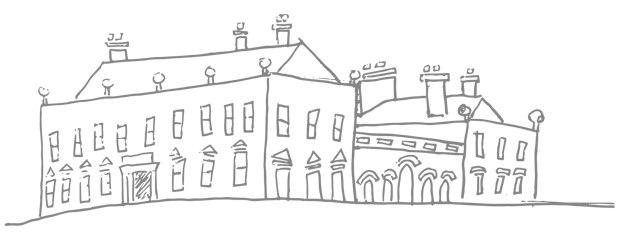Sustainability
Sustainability is about doing more with less and reducing environmental impact.
Top tips for reducing waste in your home
- Learn all about what you can recycle here
- Use the tips here to kill weeds and make your own weed killer
- Have a garden composter for organic waste like vegetable peelings, food leftovers, teabags, fruit peelings, garden waste and divert 1/3 of your waste away from landfill
- Buy fruit and vegetables that have no unnecessary packaging, e.g. bananas don’t need a bag and pick your own loose mushrooms and put them in a paper bag instead of ones pre-packed in plastic
- Where possible buy groceries packed in recyclable packaging like glass or cardboard instead of foil and plastic, e.g. loose washing powder in a cardboard box instead of individually wrapped portions of detergent
- Use a lunchbox for your sandwiches or salad and don’t wrap them in plastic
- Use washable kitchen cloths instead of disposable wipes / kitchen towels
- Bring your own bags for all shopping trips – clothes, books, toys and groceries
- Re-use paper and plastic shopping bags as many times as possible
- Buy a battery recharger and use recyclable batteries
- Where possible buy larger containers, e.g. a 2-litre bottle of cola instead of a few small bottles or cans
- Don’t dump old clothes or furniture –
- Give gifts in re-useable gift bags instead on wrapping paper.
- Use cloth nappies…by using cloth nappies even some of the time you are saving money and helping the environment.
Top tips for reducing waste in your workplace
- Photocopy and print on both sides of the page
- Proof-read documents and read emails on screen rather than printing them out
- Use mugs and glasses instead of paper / plastic / polystyrene containers for hot and cold drinks
- Don’t dump used printer, fax and photocopier cartridges – most suppliers and many charities collect returns
- Separate office paper, cardboard, newspapers, plastic bottles and organic waste and get it recycled – you will save money as well as the environment
- Use stainless steel cutlery instead of plastic
- Use salt & pepper cellars instead of pre-packed sachets
- Re-use envelopes and jiffy bags
- Have a garden composter for organic waste like teabags, fruit peelings
- In the canteen, encourage staff to take only the number of serviettes and condiments they really need
Bring Your Own Cup
Over 1,000 cafés in Ireland are now giving a discount to consumers with a reusable coffee cup and are geo-tagged at www.consciouscup.ie
Reusable coffee mugs are most often praised for their environmental benefits. It makes perfect sense to even the most stubborn critics. One less disposable coffee cup in a landfill equals less material placed into a landfill. More than half a million coffee cups are binned in Ireland every day!! Making the switch to a reusable coffee cup has the potential to benefit your health, as well as your wallet. Need proof? Here are three more advantages of reusable coffee mugs.
1. Reduced exposure to toxins from disposable cups
Do you know what’s in your disposable cup? Probably not. If you are looking for natural ways to detox your body, avoiding chemicals that are found in some disposable cups is a great place to start. Even BPA -free disposable cups can contain other materials that mimic oestrogen. These substances can then leach into your coffee. Consumption of chemicals that mimic hormones (such as estrogen) can eventually disrupt the balance of your hormones.
2. You get to control the coffee and ingredients
Without a reusable coffee mug, it is more than likely that you’ll have to make a stop at a nearby coffee shop. If you prefer the health and environmental benefits of organic coffee, have allergies to certain ingredients, or want to limit your calorie intake, you don’t always have great options. Making your coffee at home and bringing it with you in a reusable coffee mug allows you greater flexibility. You can buy your favourite brand of coffee, skip unhealthy extras, and leave out ingredients that you need to avoid. When you make your own coffee beverages, you’ll always be in control of your coffee experience.
3. Save money every week
Coffee shop stops add up quickly. Spending €3-€6 per day on a cup (or two!) of your favourite morning beverage is not the most budget savvy move. Depending on your individual coffee habits, making your coffee at home and bringing it with you has the potential to save you hundreds of dollars every month.
Should you switch to a reusable coffee mug?
For the environmental benefits, health benefits, and the monetary benefits, switching to a reusable coffee mug is the way to go. Even if you can’t give up your habit of going out for your morning coffee, nearly all coffee shops welcome the use of reusable coffee mugs. Making this one, simple change has the potential to bring you a wide range of advantages.
Use Recycling Centres
Use one of the 4 local Bring Centres for recycling:
- at Ballyogan Recycling Park
- at the Car Park at Dunnes Stores, Cornelscourt
- at the Car Park at the entrance to Cabinteely Park near Cabinteely House
- at the Car Park at Seapoint Rugby Club
Greenhome
Waste reduction and prevention is top of the waste management hierarchy. There are lots of ways we can reduce our waste and with simple changes we really can make a difference.
Cabinteely Tidy Towns has registered as a Group with Greenhome. If you would also like to save on your energy bills while saving the planet you should register too.
Once registered, please complete the Pre-Greenhome Survey to establish your household’s Green credentials. This only takes five minutes and is food for thought. All of the information you provide is data protected. Having received your score and identified areas for improvement, follow the tips provided under the Green Home Themes Section for 3 months and complete the Post-Greenhome Survey. Hopefully you will have reduced your household bills while protecting the environment. A good result!
Recycling Workshop
In March 2018 Cabinteely Tidy Towns ran a free Recycling Workshop with VOICE and WEEE information evening.
Stopping Food Waste
In conjunction with DLRCoCo and Irish Peatland Conservation we ran a ‘Stop Food Waste’ course in June 2017.
Furniture Restoration
– Read about the furniture restoration course in Cabinteely


